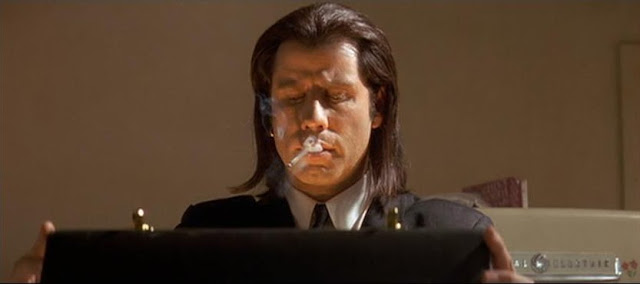
"Me and Mom versus you and Dad." The Squid and The Whale opens with this line as the family gears up for a tennis match, setting up the combative characters and true-to-life narrative about the ramifications of divorce that plays out for 83 minutes. The tennis match is tense and rhythmically-bereft, there are no fluid exchanges of the ball - a metaphor for the fragmentation of this family. These are not the Beavers - the perfect nuclear family - we are introduced to, but a real, authentic, disjointed and insecure family on the brink of dissolution. Noah Baumbach made his directorial debut in 1995 with Kicking and Screaming, a film about college graduates who cannot move on with their lives. The Squid and The Whale strikes the same cord by bringing into focus the complexities of life amidst drastic change.
The film boasts a strong cast, all of whom deliver impressive performances. Jeff Daniels, who has displayed an array of talent in memorable roles (The Purple Rose of Cairo, Pleasantville, Speed, Dumb and Dumber) throughout the years, adds to his resume with this impassioned portrayal of the bitter, ego-centric father Bernard Berkman. Laura Linney (The Truman Show, The Savages) works great opposite Daniels as Joan, and Owen Kline effectively plays the confused, neglected youngest son Frank. However, in the end this is the performance that propelled Jesse Eisenberg into future lead roles in Adventureland, Zombieland, and whatever other "-land" is being made as we speak. He takes the cake as the socially-awkward, pretentious teen Walt, attempting to understand the unanswerable questions all around him. Each of the characters are flawed, immediately choosing sides and assigning blame in the conflict as their relationships crumble. But the film develops and reveals its focus as being not on the conflict itself, but on the change that accompanies it. As soon as the immediate aftershocks of the divorce announcement subside, we witness the long term consequences of the parent's actions on the development of their children; "Don't most of your friends have divorced parents?" asks Bernard, establishing the setting in our modern day, divorce-prevalent society.
Each child copes with change differently. Frank, at the vulnerable age of 12, struggles in searching for his identity in his reflection, attempting to cope with new features he hadn't seen before. Walt, age 16, realizes that his false perceptions of the world were merely illusions grounded in his childlike naivety. There always comes a day, for all of us, in adolescence where the world opens up, and we are forced to face the truths about ourselves and the people around us. This comes for Walt when he realizes that his father is not the unappreciated, all-knowing man he had always admired, and more importantly, that there isn't always an easy fix for the often indiscernible complications of life.
Filled with small, poignant moments of insight, candidness, and raw emotion that personally resonates with the viewer, The Squid and The Whale teaches serious life lessons as it studies the behaviors of real human-beings caught in conflict. A tragicomedy, with comedy more sour than sweet, and an emotional punch that knocks the wind out of you, Baumbach's autobiographical story ultimately proves that everything in life will be fine in the end - it just won't be what was once expected.
Written By John Carney



